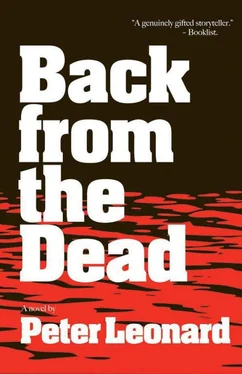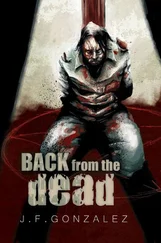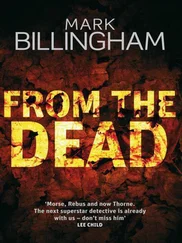“Harry, I can’t believe we’ve found him.”
They’d been lucky to say the least, lucky Anke Kruger had remembered the name Vincent Chartier, and lucky they’d been able to trace the property through tax records. But it didn’t prove Hess was living there, and if he wasn’t there, where was he?
Harry convinced Colette to drop him on the road near the villa.
“I want to go with you.”
“You can’t. There’s no other way to get close. Give me twenty minutes, I’ll meet you at the cafe.”
“I have a bad feeling about this. I think we should come back with Cordell.”
“I just want to see what the place looks like. If I’m lucky Hess will be sitting outside reading a book. I’m not going to take any chances.”
Harry got out of the Peugeot just north of the villa at 26 corniche des Oliviers, using the wall for cover. He walked to the entrance. Looking through an opening in the gate he could see the villa, built on the side of a hill on two levels. The upper level was where you entered. The lower level opened to a deck with lounges and a long dinner table and chairs on one side and a swimming pool on the other side.
Harry saw a stocky woman wearing a wide-brimmed hat, cape and scarf come out of the house and walk toward a Fiat parked on the driveway just inside the gate. Harry moved north along the outside wall, walking on the road. He saw a car approaching and turned his back. He heard the gate open and saw the Fiat drive out heading south, and on impulse, he ran back and slipped through the gate as it was closing and ducked behind the garage.
From this vantage point, he could see across the valley, clouds resting on higher hills in the distance. Looking south he could see the red tiled roofs of Nice and beyond it the Mediterranean. Stone stairs led to another level of the property. There was a small shed or cottage at the bottom of the slope. Harry went down to the pool deck. The afternoon sun was slanting through the sliding glass doors and he could see into the house. It was a big room with a lot of furniture, and no one appeared to be in it. A wall overflowing with flowering plants ran north parallel to the villa. A man in a work shirt was trimming a palm tree on the far side of the property.
Harry went back up to the garage and followed the stone walk — looking down at the pool — to the main entrance, assumed the door was locked but it wasn’t. He opened it and stepped into a small marble entryway. Stood listening, but heard nothing. There were two bedrooms on his left. There were stairs that went up and stairs that went down. He went down into an office that had a desk, chair and typewriter. He could see the gardener through the window, wiping his brow and then drinking water out of a bottle.
He sat and opened drawers and found envelopes addressed to Vincent Chartier, a phone bill that listed calls — though nothing long-distance from Germany or the U.S.. He found a water bill, tax bills, bank statements. Okay, so Vince lived here, but he already knew that or assumed it. What was his connection, if any, to Hess?
Harry moved along a hallway that led to the back of the villa, kitchen on the left, wine bottles, fruit and baguettes on the counter, food in the refrigerator. The salon was next, with glass doors that went out to the pool. The gardener walked by, crossed the deck and took the steps to the lower level.
Harry went back upstairs to the main floor, and up to the master bedroom that took up the entire second floor. There was a bed and dresser, chairs and a table, and a sliding door that led to another deck with a view of the entrance gate, garage, and directly below him, the pool. He checked the closet, men’s clothes on hangers. There was a bright-colored painting on top of the dresser, leaning against the wall. He checked the drawers, moved his hand under handkerchiefs that were neatly folded, felt something and brought out a passport. It was a deep red color and said Republique française in gold type over a gold crest. Harry opened it, looking at a photograph of Ernst Hess, a younger version, taken many years before. Over the photo it said Vincent Paul Chartier.
He heard something, looked out the glass door and saw the electric gate opening. The woman in the Fiat had returned, pulling into the short driveway. Harry put the passport back, closed the drawer, ran down the stairs to the front door, opened it and looked toward the driveway. The woman in the hat had a grocery bag in her hand and was leaning over the wall, talking to someone — probably the gardener. Her hat tipped forward and she fit it back on her head.
Harry went out the front door and unlocked a wrought-iron gate in the outer wall, opened it and walked out to the road, his back to traffic, cars zipping by, looking over his shoulder.
Colette was in the cafe parking lot behind the wheel of the Peugeot. Harry got in and looked at her. “Hess is Chartier. I saw his passport.”
“Oh my God. Thinking it is one thing, Harry. Knowing it is something else.”
Now they had to decide what to do with him.
“It smells wonderful in here,” Hess said, walking in the kitchen, putting the paper bag on the countertop and taking out the three bottles of wine. “Nothing like the smell of sautéed onions and garlic.”
“Someone was in the house,” Marie-Noëlle said, slicing mushrooms on a cutting board. “I was returning from the market.” She put the knife down. “Claude was cleaning the pool. I stopped to talk to him.”
“Who was it?”
“I have never seen him before.” Marie-Noëlle’s face was perspiring. She dabbed her cheeks and forehead with a dishtowel.
“Did you ask what he wanted?”
“No, monsieur. It happened quickly. I saw something out of the corner of my eye. And when I looked again the man was moving to the wall, and then through the gate to the street.”
“You did not follow him?”
“No, monsieur. I wanted to see if anything had been stolen.”
“Was he carrying anything?”
“I could not see.”
“You checked the house. Is anything missing?”
“I do not think so.”
“What did this man look like? Describe him.”
“He had dark hair. Not tall. Not heavy. I did not see his face.”
“Was he a laborer?” Maybe a man looking for work.
“I cannot be sure. I am sorry, M. Chartier. I looked over and saw him, the man surprised me.”
Hess thought there might be a reasonable explanation. The man had been hunting and came up from the valley chasing after his game. “Was he carrying a rifle?”
“I do not know, monsieur .”
More likely the intruder had been walking from villa to villa looking for work. No one could possibly know Hess was in Nice. Anke had been to the villa two years ago, but she didn’t know he owned it, and he doubted she would have any idea how to find it. Anke was pretty but not particularly bright.
Hess went out to the pool. Claude was skimming leaves off the surface of the water. The gardener noticed him and said, “Bonjour, monsieur .”
“Let me ask you something. Have you seen anyone on the property today?”
“No, monsieur .” He rubbed the reddish-brown stubble on his jaw. “Mme Despas asked me. I didn’t see anyone.”
Claude was sleeping with her but always referred to Marie-Noëlle in a formal way.
“Keep your eyes open and your shotgun close.”
“Is there a problem, monsieur ?”
“If the man returns.”
Hess went back inside. He thought about the painting, ran up to the bedroom: there it was on top of the dresser where he had left it. So evidently the intruder was not an art aficionado. He thought about the passport, checked the drawer; it was there. The villa was owned by Vincent Chartier, Hess’ French alias. He had a forged French passport and French driver’s license, and spoke the language fluently. No one but Anke knew about the villa, and no one but Leon Halip knew that Vincent Chartier was Ernst Hess. All of the bills, taxe d’habitation and taxe foncière, electric, water and telephone, were paid by Marie-Noëlle from an account at Société Générale. Hess had opened the account with cash, making periodic deposits to maintain enough to cover expenses. The bank statements were mailed to the villa. There was no paper trail that connected it to Hess.
Читать дальше












